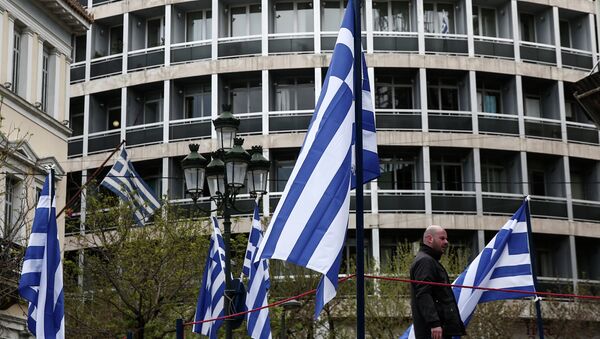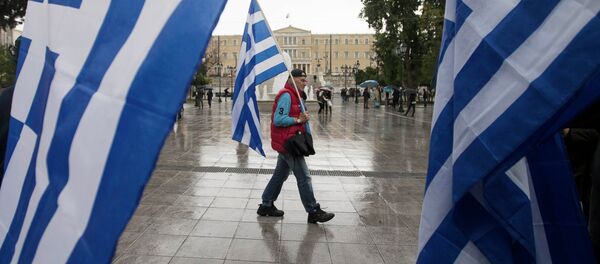"Sanctions is a European problem and a Russian problem, it’s a Euro-Russian problem and Greece has pointed out since the beginning that sanctions are not in favor of any of the parties," Kostas Isychos, a co-chairman of the Russian-Greek interstate commission, said.
The official added that Greece will work to prevent extension and increase of anti-Russia sanctions by promoting dialogue between Europe and Moscow.
"Both entities are natural geographical, geopolitical, energetical allies and strategic partners. So there is no reason for belligerence between these two blocs, between the European Union and Russia. So we will continue on that criticism, which has not changed, as far as we’re concerned," Isychos said.
According to the deputy minister, Greece is interested in Russia as a strategic partner and is looking to enhance its foreign policy toward other countries outside the European Union as well, particularly BRICS members.
In 2014, the United States, the European Union and some of their allies imposed economic sanctions on Moscow over allegations that Russia was meddling in Ukraine’s internal affairs by its support for independence fighters in the Luhansk and Donetsk regions targeted by a Kiev military operation.
Russia has repeatedly stated that it is not involved in the situation in Ukraine and responded to Western sanctions by introducing a year-long embargo on food imports from countries that targeted it with restrictive measures.
European leaders are expected to decide on extending anti-Russia sanctions at a June 25-26 summit in Brussels.



